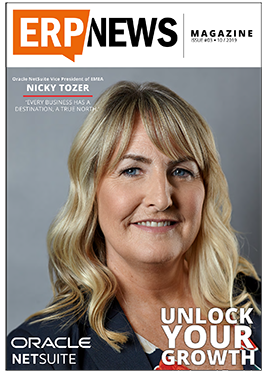Industry-specific ERP is designed to meet the unique needs of specific industries by addressing industry-specific challenges, complying with industry-specific regulations, and supporting industry-specific workflows. This article will explore industry-specific ERP in more detail, including its benefits, examples, and drawbacks.

Benefits:
Industry-specific ERP offers several benefits over generic ERP, including:
1. Better Compliance: Designed to comply with specific regulations and standards that are unique to an industry. For example, a pharmaceutical company’s ERP system must comply with Good Manufacturing Practices (GMP) and other regulatory requirements. By complying with these regulations, an industry-specific ERP system can help a business avoid costly fines and legal issues.
2. Customizable: They are designed to be easily customizable to meet the unique needs of a specific industry. These systems offer a wide range of features and functionalities that can be tailored to meet the specific needs of a business.
3. Improved Efficiency: Improved business efficiency by streamlining industry-specific processes, such as production scheduling, inventory management, and quality control. An industry-specific ERP system can help reduce errors and improve overall business performance by automating these processes.
4. Better Integration: They are designed to integrate with other industry-specific software solutions, such as supply chain management systems or customer relationship management software. This can help businesses better manage their overall operations and improve collaboration among employees.
Examples:
Industry-specific ERP systems are available for a wide range of industries, including
1. Manufacturing: ERP systems designed for manufacturing businesses help manage production scheduling, inventory management, quality control, and other industry-specific processes. Examples of manufacturing ERP systems include SAP ERP, Epicor ERP, and NetSuite ERP.
2. Healthcare: ERP systems designed for healthcare businesses help manage patient data, medical billing, and compliance with healthcare regulations. Examples of healthcare ERP systems include NextGen Healthcare, Cerner, and Allscripts.
3. Construction: ERP systems designed for construction businesses help manage project management, resource planning, and job costing. Examples of construction ERP systems include Procore, Viewpoint, and Sage 300 Construction and Real Estate.
4. Retail: ERP systems designed for retail businesses help manage inventory, point-of-sale systems, and customer relationship management. Examples of retail ERP systems include Microsoft Dynamics 365 for Retail, Oracle Retail, and Infor CloudSuite Retail.
Drawbacks of Industry-Specific ERP:
While industry-specific ERP offers several benefits, it also has some drawbacks, including:
1. Higher Cost: They are typically more expensive than generic ERP systems. This is because they require more extensive customization to meet the specific needs of a business.
2. Limited Flexibility: These systems are designed to meet the specific needs of a business. This means that they may be less flexible than generic ERP systems, which can limit their ability to adapt to changing business requirements.
3. Complex Implementation: And they require a more complex implementation process than generic ERP systems. This is because they require more extensive customization to meet the specific needs of a business.
Conclusion:
Industry-specific ERP is a software system designed to meet the unique needs of specific industries. These systems offer several benefits over generic ERP, including better compliance, customization, improved efficiency, and better integration with other industry-specific software solutions. However, they also have some drawbacks, such as higher costs, limited flexibility, and complex implementation. Ultimately, the choice of an ERP system will depend on a business’s specific needs, budget, and goals.





